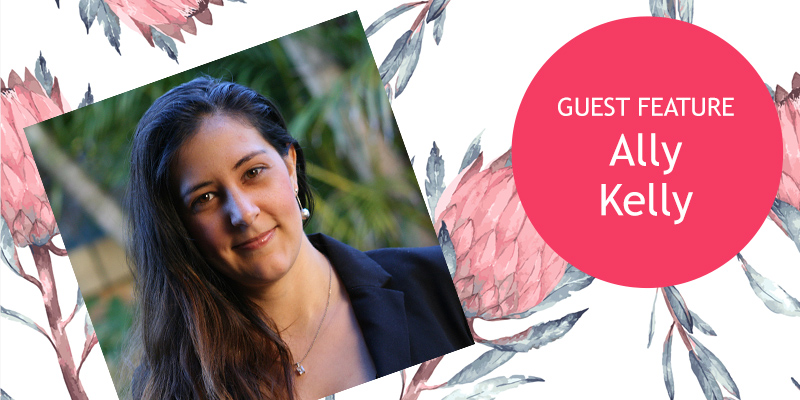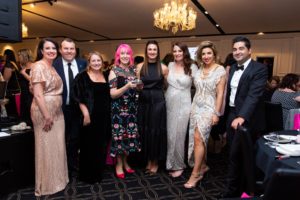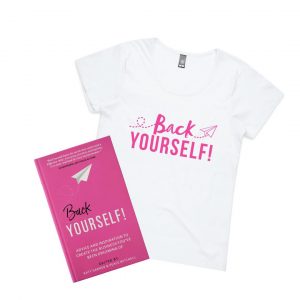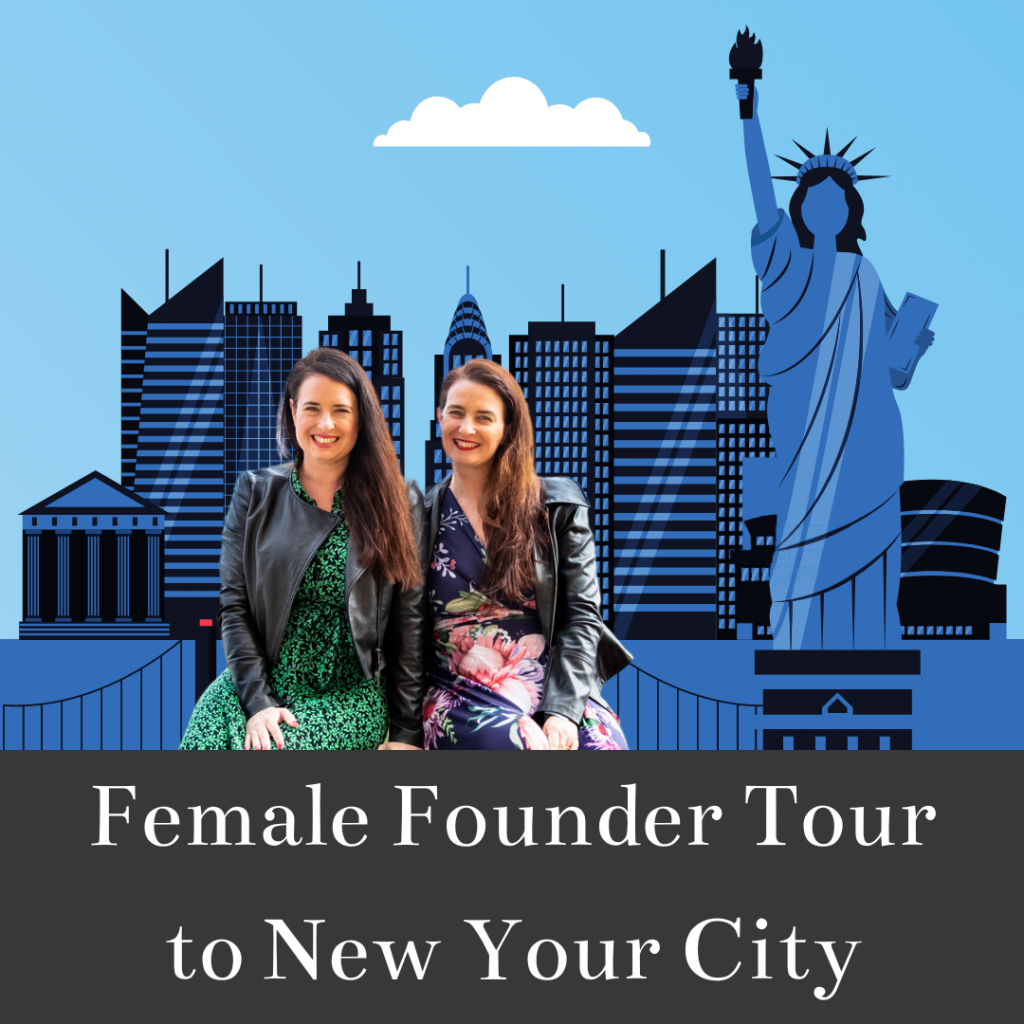This week’s Ambassador Feature is with Ally Kelly, Mind Blank Ltd
2019 Women’s Business School Accelerate Award – Bronze winner
Ally Kelly is the Chief Executive Officer & Founder of Mind Blank Ltd, aiming to reduce the risk of suicide in schools and communities through interactive theatre. Ally’s personal experience with mental health struggles and family experience with suicidal behaviour has fuelled her passion for mental health awareness.
She has led the Health Promotion Charity through eight years of service. Her innovation, creativity, and leadership have been recognised on national scale in winning the 2017 Mental Health Matters Award for Mental Health Promotion and the 2019 Mental Health Services Award for Mental Illness prevention.
As a founder of a small grass-roots charity, she has observed that Australia lacks the body of research to show evidence in the long-term benefits of arts and health programs running in the community. Through research and program evaluation she aspires to support community arts programs and grassroots initiatives to make a more sustainable impact in Australia.
*****
Tell us the story behind why you love what you do and why you’re so passionate about sharing your message.
The first sign that my family’s mental health issues were affecting my schooling was in year 1. My report card read, “Alison had missed quite a lot of school in 1992 due to her ill health.” When asking my parents about this years later, I found out that the reason my school attendance suffered is because I was on suicide watch, but not for me. In other word my Father knew that my Mum wouldn’t do anything to harm herself if us kids were there, so he took us out of school for the day to help her keep her safe.
Tell us a story about a challenging time you faced, how you overcame it and what lesson/lessons/wisdom this experience has taught you about life and business.
I spent a lot of my younger years running from my past traumas. It showed up in ways that I hide from most of the stakeholders in my life. Back then I was overcommitted, stubborn and independent.
There was a time that I was at University Full-Time, doing a Diploma of Music at the Conservatorium Part-Time and working casually on the weekends to pay my way through my studies. By the end of my third year, my health was compromised. I was so burnt out. Anxiety took over and when I was isolated, I became depressed. During that stage in my life, I was addicted to doing things and I did not know how to stop.
Overcoming my hidden trauma allowed me to understand my past. I do no fear it anymore. Through therapy, I have confronted and concord my greatest challenge. I am now a lot more immune to fear, and I tend to face it head-on.
When I was younger I did not know how powerful my personal story would be in helping others. My story is the motivation for my business, and I am proud that our work has touched the lives of over 30,000 young Australians!
What I am most proud of is that I am a generation in my family that has broken a cycle of a deep depression. It has affected the woman in my life for several generations, and now I help support others get help when they need it the most. Today I help run collaborations all over Australia to embed suicide prevention strategies into community practice.
I am so grateful to have found my soul purpose in life. After years of being a carer for a loved one, I can now see that it has given me an incredible superpower. I am free to share my knowledge to help make an impact and create a world that supports the next generation in living their best lives.
What are 3 pieces of advice you would give someone starting out in business?
- Be deliberate in your planning.
- Stick to your plans and be patient with your journey.
- Take care of yourself. Health is one of your greatest assets.
What is your proudest business achievement? Why does this mean so much to you?
In 2016 I started a collaboration with TeamHEALTH (Top End mental health service provider). Since then we have run annual tours to schools in Darwin, Palmerston and rural communities around Kakadu National Park. Working alongside the Elders in Indigenous communities has been such a blessing. The students in community are always so lovely.
This partnership means a lot to me because my heart breaks to hear about some of the challenges that they face, on an ongoing basis. I feel proud that I have created a legacy in this partnership and I am grateful to see so many primary schools prioritise health promotion effort for their students.
I wholeheartedly believe in early intervention and prevention. I’m glad to see a slowly emerging interest in investing in this space as it is becoming an emerging agenda for the government to discuss when allocating the health budget.
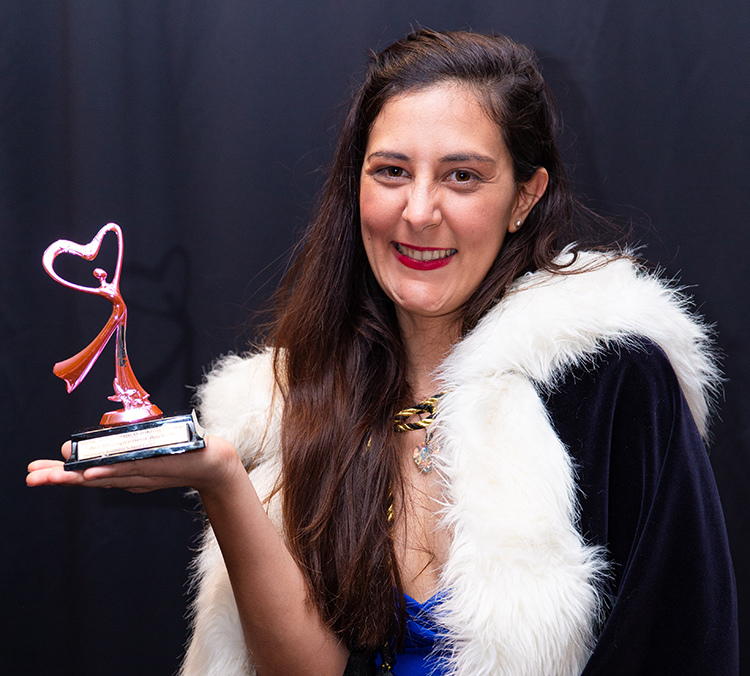
Image credit: Alexandra Anderson, Jam on Your Collar
What’s next for your business?
I am aiming to shift our strategy to encourage more sustainable community action. One strategy I foresee in the next 5 years is to trial a Mind Blank project adapting a concept peer support methods to deliver health promotion techniques using a whole school approach. E.g. our team would work with the year 11 drama students and train them to run the program for the year 10 students. Then we would repeat the training for the year 10 drama students etc.
Other opportunities for our team lie in being able to deliver the model in more cost-effective mediums. Therefore we are exploring filming online VR and AR program licensing models.
If you could change the world, and money was no object, what would you do?
I would reinvent the entire health, justice and educations systems here in Australia. It would take time, however, there are models of efficiency I am seeing in some international countries that I would encourage we learn from. Examples being:
- I am a huge fan of social prescribing models that are being trailed in the UK. G. you can now go to a GP with depression/isolation and the doctors can prescribe you community connection tools (such as a 10x week art class) instead of offering clinical solutions (such as pills).
- Sweden has some amazing health and education systems in place. They also have 40 hours a week, which is great for employee’s mental health.
Finally, what do you believe is the secret to success?
- I believe one of my secrets to success is that I am constantly growing as a person. Very early on I was introduced to personal development. I was raised to believe anything is possible. It helped me accept that there are no short cuts to personal growth. It requires drive, tenacity, persistence, and alignment to a purpose that is bigger than your own selfish needs.
- Getting your mindset onside with you is by far one of the best things you can do for yourself.
- I also believe that mentors can have a great influence in your life. Mine have lifted me up to be who I am today.
To learn more about Mind Blank, please visit :-
Website: www.mindblank.org.au
Facebook: https://www.facebook.com/MindBlankLtd/
Instagram: https://www.instagram.com/mindblank_ltd/

